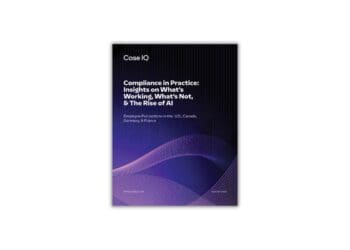When a small contractor asks to be paid off the books, it’s tempting to see this as David vs. Goliath — the little guy trying to survive while wealthy corporations seem to have their own rules. But Ask an Ethicist columnist Vera Cherepanova argues that the ethical response isn’t about whether someone deserves a break from the system. It’s about finding ways to help within the boundaries we’ve collectively agreed to honor.
I work in a mid-sized construction company. Recently, a small contractor asked me if we could pay their invoices in cash instead of through our usual system. citing cash-flow pressures and delayed receivables. I suspect it’s also about avoiding taxes. My boss says this is a clear violation and we must refuse. But part of me thinks this is a small, hardworking business just trying to survive, while massive corporations and wealthy individuals exploit loopholes legally every day. Is it really unethical to let the little guy “bend the rules,” especially when the system already feels so unfair? — Name Withheld
Your case is a good illustration of the tension between ethics and compliance. From a compliance perspective, the answer is clear: Companies can’t pay cash off the books. Records must be accurate, taxes reported and procedures followed. That’s non-negotiable.
But your actual question is ethical: Is it wrong to go along with what looks like a modest request from someone who seems disadvantaged compared to wealthy corporations or executives?
Most Americans do their part to fund public services, even knowing the system is imperfect. Roughly 85% of taxes owed in the US are paid voluntarily and on time. When someone avoids taxes, it shifts burdens to others. However modest the amount, integrity rests on honoring obligations we’ve collectively agreed to through democratic means.
I understand your frustration with inequality; seeing individuals struggle while the wealthy seem to play by different rules can make “a little off the books” feel harmless, even justified. But if the system is unfair, the right remedy is democratic reform, not individual acts of noncompliance.
There’s also a practical side people often forget. Underreporting income can hurt the supplier in the long run: Social Security, disability coverage, even mortgages and loans depend on reported earnings. What looks like short-term relief can reduce retirement income and future options.
So what should you do? Legally and ethically, stick to the rules. Pay through proper channels and protect both yourself and your company. But don’t stop there. Explain why you can’t do cash, and if liquidity is the real problem, explore other ways to help: faster payment cycles, supplier support programs or more flexible terms. Supporting small vendors doesn’t mean breaking the rules; it means finding fair solutions within those rules.
Compliance sets the boundaries, but ethics is how we navigate inside them. Following the rule is necessary. Treating the supplier with dignity and compassion while addressing the difficulty that led to the request — that’s what makes the response ethical.
If AI Can Easily Game Hiring Processes, Maybe It’s Time to Rethink What You’re Looking For
Using AI to prepare for an interview is OK, but what about using it to perform?
Read moreDetailsReaders respond
The previous question came from a head of talent acquisition at a tech firm grappling with the use of AI in hiring. The dilemma revolved around whether candidates using AI to pass technical interviews should be rejected as dishonest or valued as resourceful, raising broader questions about trust, fairness and the meaning of integrity in the age of automation.
In my response, I noted: “Cluely’s manifesto is not just marketing; it reflects an emergent worldview: The economic nihilism of the younger generation is a coping mechanism and an entrepreneurial strategy. Today’s economy doesn’t reward loyalty, mastery or meaning; it rewards optimization, virality and arbitrage. Job applicants apply for dozens of roles, go through layers of automated screening and are rewarded for mastering tests, not for originality or for depth. Employers routinely use AI to screen résumés, scan video interviews and automate rejection emails. When the system feels impersonal, gameable and cold, is it any wonder that candidates respond in kind?
In that context, “cheating” becomes not a breach of trust but a rational response and adaptation to a reality where most outputs feel fake and reward systems are opaque. There is a generational reckoning, and maybe what’s most chilling is that the “cheating economy” doesn’t feel fringe or dystopian. It feels like a business case for the not-too-distant future. So, what should ethical frameworks look like in a world where cheating is rebranded as optimization and employees view rules as outdated rituals?” Read the full question and answer here.
Love this. The paragraph on what today’s economy is rewarding and the impersonal nature of some interviews is sobering. You will make me think about this moving forward — Marcella Hatch
Outsourcing your answers is plagiarism. Framing this as a generational coping strategy is an overstretch and clearly disadvantages those who show up honestly. Companies should adapt their processes, yes, but they shouldn’t be okay with cheating just because the job market is tough. — An EthicalOne
Interesting angle; from a trust perspective, I foresee that people may start being judged or even bullied for using AI. I have already seen a few examples. However, after watching the recent [World Economy Forum] session: Profiles are starting to outweigh CVs, tests and interviews. If you can’t demonstrate your skills, regardless of how many years of experience you have, you’re no longer considered the right fit. In my opinion, this is a complete game changer. — Alexandra Vlasova




 Vera Cherepanova
Vera Cherepanova








